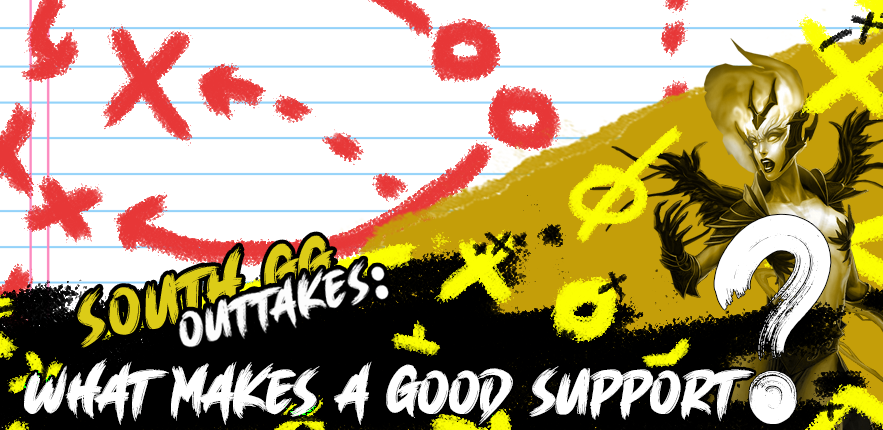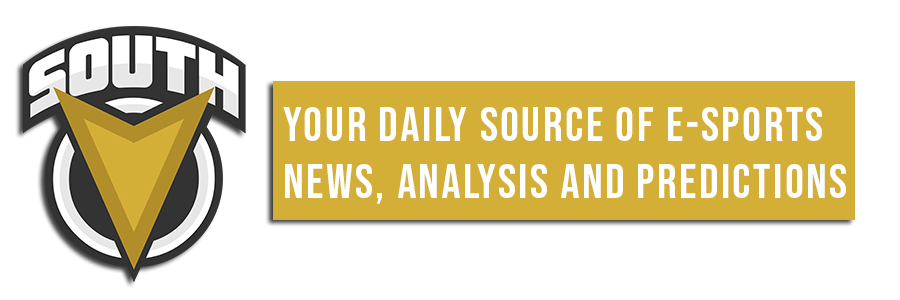South.gg Outtakes: What makes a good support player?

****DISCLAIMER: SOUTH.GG OUTTAKES IS A SERIES WHERE EMPLOYEES WITHIN SOUTH.GG STATE THEIR OPINIONS ON ESPORTS-RELATED MATTERS. THESE OPINIONS ARE SEPARATE FROM THE COMPANY AND THEREFORE SHALL NOT REPRESENT THE COMPANY’S VIEWS AS A WHOLE.****
When people hear the word support, they automatically associate it with being the easiest role in a team game, some beginners might even consider supports as the weakest member of the team. Those kinds of assumptions could never be more wrong: supports do more than just be a living ward and being the enemy’s walking target dummy, supports have one of the most complicated roles in any kind of team game that you play.
What exactly is the role of a support, you ask? Well, being a support main for most of my life as a gamer, I think I could walk you through some of the common tasks that support players usually do. Now, I’m in no way an authoritative figure when it comes to these kinds of things, nor am I exactly a professional player, so I might not be mentioning things that other support players do that I don’t.
One of the core functions of support players is to keep the rest of the team alive and help the carries farm their core items faster. Generally, supports rank the lowest in farm priority and should spend their passive gold on utility items like wards and items that help the team’s survivability. In League of Legends, that usually translates to wards and items that provide a team-wide shield, or an AoE healing spell that also deals damage to any enemies caught in the radius. In Dota 2, that translates to items like Observer Wards, Sentry Wards, Dust of Appearance, Smoke of Deceit, as well as items like Urn of Shadows and Arcane Boots for that extra mana sustainability.
Some of you might say that this is all what a support player should do, but you’re gravely mistaken.
The next thing supports do that is often overlooked by lower-ranked players is their role to provide map control by clearing enemy vision and laying down their own. One of the most crucial things to have in team games is the ability to think on a macro scale, which includes things such as map awareness, sensing the enemy team’s next moves, and the ability to quickly adjust to steer things to your advantage.
There are also other things that supports do based on their classifications. For example, bulkier tank supports act as meat shields that absorb the damage from creep waves and enemy heroes, heal-focused supports ensure the survivability of their carry, while champions loaded with crowd control and damaging spells can disrupt the rhythm of their lane and turn the tides to their favor by constantly harassing the enemy carry.
Supports also sometimes call the shots. Yes, sometimes supports get listened to, especially in higher ranks and in professional games. Since they are freer in terms of prioritizing their farm, they can easily see the bigger picture and can actually plan ganks or take objectives. In the scenarios where the support calls the shots, they usually dive in first, preventing their cores to waste any spells they have that could be used to chase enemies or be used to chain-stun the enemy.
But, what exactly makes a good support player?
For me, being a good support player means not only being able to apply all the things stated above, but also being able to recognize when to die and what to die for.
Your midlaner who is way down the net worth ranking and with a 0/3/0 record is being ganked by two players, while your 5/0/0 carry is grasping for life and being chased by the other carry? A good support player would save the latter before the former.
Your allies are spam-pinging to take the middle tower which is at 80% health, but you see your jungler taking Rift Herald that could help take out two towers in a shorter amount of time? A good support player would go help the jungler secure the Herald and then go straight to push mid, if it hasn’t already been taken down by your midlaner.
Simply put, a good support player should be able to understand situations and not just mindlessly listen to their carries because, honestly, some carry players don’t really know what they’re talking about.
